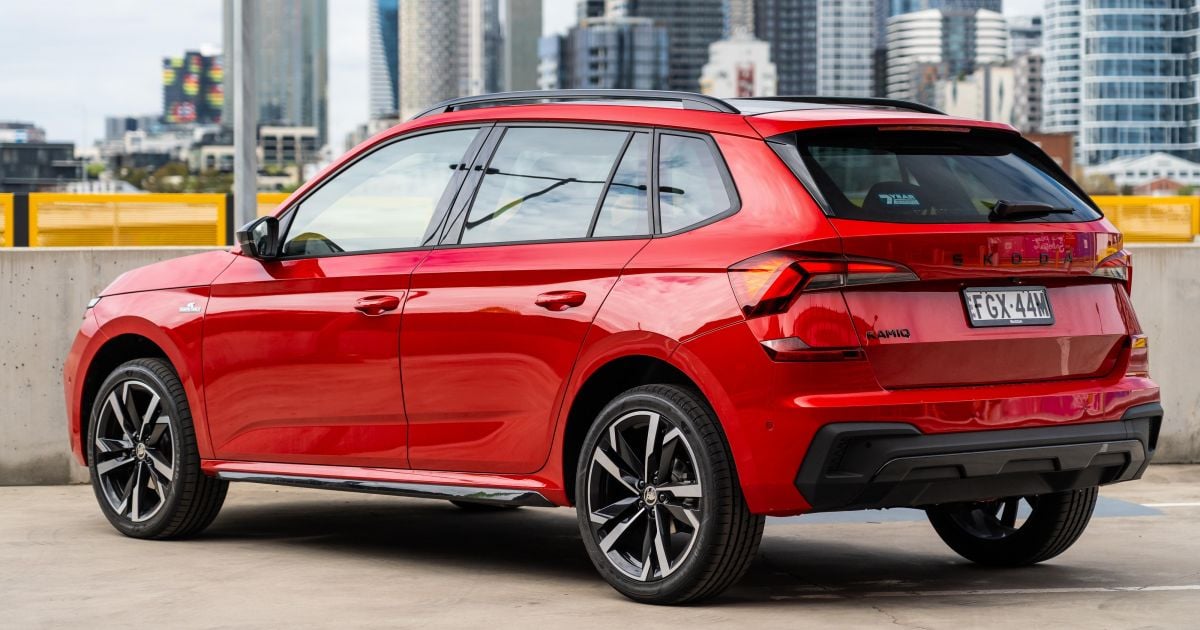
2025 Skoda Kamiq Monte Carlo review
Skoda has revamped its best-seller in Australia with more than just a fresh face.
The Kamiq small SUV range has been scaled back to just two variants – Select and Monte Carlo – following the axing of the previous mid-range Style and top-shelf Signature variants.
However, the two remaining variants both pack more standard equipment than before.
On test here is the now-flagship Kamiq Monte Carlo, which is priced $44,990 drive-away. This is the same price as the pre-update Signature range-topper, though it’s more of a sporty-oriented offering.
As part of the update, it has picked up Matrix LED headlights, a larger 9.2-inch touchscreen infotainment system, 10-speaker sound system, and Travel Assist, which combines adaptive cruise control with lane centring, among other safety functions.
Like the Signature variant it replaces, the Monte Carlo offers sporty looks inside and out, and comes with adaptive dampers, but it misses out on a wireless phone charger and heated rear seats.
There aren’t many overtly sporty SUV rivals at this end of the market, but notable rivals include the Hyundai Kona N-Line, Kia Seltos GT-Line, Suzuki Vitara Turbo, and Toyota Yaris Cross GR Sport.
But the small SUV segment is very crowded and hotly contended, so does this facelifted Kamiq Monte Carlo offer enough to stand out from the crowd? Read along to find out.
How much does the Skoda Kamiq cost?
There are now just two variants in the Skoda Kamiq range. On test here is the flagship Monte Carlo.
| Model | Drive-away pricing |
|---|---|
| 2025 Skoda Kamiq Select | $33,990 |
| 2025 Skoda Kamiq Monte Carlo | $44,990 |
To see how the Skoda Kamiq shapes up against the competition, check out our comparison tool
What is the Skoda Kamiq like on the inside?
Don’t let the Kamiq’s small exterior dimensions cloud your judgement. It’s actually rather spacious inside.
The Kamiq is an easy vehicle to get in and out of thanks to its higher ride height that’s synonymous with crossover SUVs. You pivot across rather than stepping up or down, which is great for those with limited mobility.
Once you’re in there are sporty bucket-style seats that have fabric upholstery and an inoffensive design with coloured stripes.
They are meaty units which offer lots of bolstering to secure you in. One gripe, however, is that the bolstering around your shoulders is a little too high-set and aggressive, which prevented me from sinking properly into the seat. The integrated head restraint mightn’t be to everyone’s tastes either as it doesn’t offer any adjustment, though it is at least soft and squishy.
The driver’s seat base and backrest offers plenty of electric adjustability, which is fantastic as it allows both shorter and taller people to sit behind the wheel comfortably. My favourite part is the amount of thigh support you can dial in.
Ahead of the driver is a flat-bottomed, leather-wrapped steering wheel that feels nice in the hand and looks sporty.
It may scare you if you suffer from trypophobia, however, as there are plenty of perforations to cool clammy hands on longer, spirited drives.
This flagship variant offers a heated steering wheel that gets very hot if left on the highest setting. You can tell this vehicle has been set up for frosty European mornings.
Behind the steering wheel is a proper 10.25-inch digital instrument cluster that Skoda refers to as a Virtual Cockpit. It looks high-resolution like most Volkswagen Group digital driver displays and offers countless customisation options.
My personal favourite cluster view is the one with the central rev counter. It just feels right, given the Monte Carlo’s sporty orientation.
Moving across, there’s a 9.2-inch touchscreen infotainment system mounted proudly on the dash. It isn’t overly large, like those in some SUVs, but looks high-resolution and produces vibrant colours.
The interface is easy to navigate, especially thanks to the touch-sensitive shortcut buttons that flank the touchscreen.
I experienced occasional infotainment glitches during my week of testing, which is disappointing and detracted from the experience.
At one stage the satellite navigation widget on the home screen went on the fritz. It showed a bunch of 50km/h street signs and North icons for no reason.
Another time when I started up the car, the touchscreen’s calibration was all off. When I clicked an icon on the screen a totally different menu would open. Thankfully, a hard reset of the infotainment system fixed this issue.
As standard, the Kamiq Monte Carlo offers both wired and wireless versions of Apple CarPlay and Android Auto, but with my iPhone 15 Pro Max connected wirelessly there were occasional dropouts, albeit due to known interference points.
For example, the infotainment system would sometimes lose wireless smartphone mirroring connectivity with my phone when it was in my pocket. I needed to place it on the centre tunnel to maintain connection. I’ve experienced plenty of cars with patchy CarPlay connectivity, but never one this bad.
And although the Kamiq offers wireless smartphone mirroring, there’s no wireless phone charger to keep your phone battery topped up. There’s a spot for one at the front of the centre console, but Skoda hasn’t installed it in the Monte Carlo.
You won’t be caught out with a flat phone battery, however, as there are two USB-C ports up front.
I also appreciate Skoda sticking with a physical climate control unit in this updated car. The two knobs are intuitive to use and have a clicky action that’s satisfying.
I’m also a big fan of the Air Care feature, which vents air from the cabin and replenishes it with fresh air. It’s ideal if you’ve had takeaway in the car, or a fellow passenger breaks wind.
The Kamiq Monte Carlo’s interior is befitting of a sporty-oriented flagship. Although there are plenty of black finishes, red highlights break it up and at night the interior ambient lights up the dash.
The cabin also feels very airy thanks to the panoramic glass roof, which is a large but unfortunately fixed unit that doesn’t open or vent like a sunroof. That said, I did appreciate the dark retractable blind when it was too bright inside.
All the main touch points up front are soft to the touch, though you don’t have to look far to find harder plastics. This is a flagship version of a budget small car, after all.
What did disappoint me was the amount of creaks and rattles the interior plastics made, even during low-speed urban driving. The main culprit appeared to be a creak behind the digital instrument cluster, though my partner also noted numerous others on the passenger side on a long country drive.
Thankfully, you can turn up the volume on the excellent 10-speaker sound system to dull the rattles.
This car is built on a version of the MQB platform that underpins the likes of the Volkswagen Polo. Largely, the Kamiq belies the fact it’s built on a small-car platform, but the centre console is proof of its limitations.
It’s not very wide and has awkwardly small cupholders, plus there’s still a physical handbrake that eats further into storage space.
But I’m thankful there’s a proper centre armrest, as this is a common omission in small cars. It also ratchets to allow you to dial in your desired position.
Moving to the second row, there’s more space than meets the eye. At a leggy 182cm, I had oodles of leg, head, shoulder, and toe room behind my driving position.
The two outboard rear seats are comfortable and supportive, and the head restraints are squishy. They’re a great place to spend longer periods of time in, though the big one-piece front seat backs do block a bit of frontward visibility.
There’s plenty of space for two people in the back, though pushing it to three gets really squishy. The middle seat is compromised as it’s smaller and raised, plus you need to contend for feet space due to the large transmission tunnel.
In terms of second-row amenities, there are centre console-mounted air vents, USB-C ports, as well as map pockets on both seats with device slots. One of the few things that’s missing in the second row is a fold-down armrest with cupholders, but this is common in smaller cars and SUVs.
Around the back, the Kamiq Monte Carlo has a power tailgate that opens quickly and quietly. Once it’s open there’s a massive amount of space, which is typical of Skoda vehicles.
The Czech carmaker claims the Kamiq Monte Carlo has 400 litres of boot capacity with the rear seats upright, though folding them expands boot capacity to 1395 litres. The floor is not completely flat, however.
One catch with the boot is that there’s a high loading lip, meaning you’ll need to lift items up into it. It’s not the end of the world, but is something to keep in mind if you’re carrying heavy items.
Like a typical Skoda, there are plenty of hooks in the boot, as well as storage nooks off to each side. Under the boot floor there’s a space-saver spare wheel.
Lastly, the Kamiq wouldn’t be a Skoda without the requisite ‘Simply Clever’ touches. Some examples include an umbrella neatly tucked into the driver’s door, a parking ticket holder on the windscreen, and an ice scraper in the fuel filler flap.
| Dimensions | Skoda Kamiq |
|---|---|
| Length | 4241mm |
| Width | 1793mm |
| Height | 1531mm |
| Wheelbase | 2651mm |
| Cargo capacity | 400 litres (5 seats) 1395 litres (2 seats) |
To see how the Skoda Kamiq shapes up against the competition, check out our comparison tool
What’s under the bonnet?
The Skoda Kamiq Monte Carlo comes with a more powerful 1.5-litre turbocharged four-cylinder petrol engine that produces 110kW of power and 250Nm of torque.
| Specifications | Skoda Kamiq Monte Carlo |
|---|---|
| Engine | 1.5L 4cyl turbocharged petrol |
| Power | 110kW |
| Torque | 250Nm |
| Transmission | 7-speed DSG |
| Driven wheels | Front-wheel drive |
| Weight | 1340kg |
| Fuel economy (claimed) | 5.6L/100km |
| Fuel economy (as tested) | 5.5L/100km (1110km total) |
| Fuel tank capacity | 50L |
| Fuel requirement | 95 octane premium unleaded |
| CO2 emissions | 126g/km |
| Emissions standard | Euro 6 |
| Braked tow capacity | 1250kg |
It’s worth noting that our average as-tested fuel economy figure was achieved with plenty of highway and freeway kilometres, but we still achieved under 6.0L/100km in most urban driving scenarios.
To see how the Skoda Kamiq shapes up against the competition, check out our comparison tool
How does the Skoda Kamiq drive?
Starting up the Kamiq Monte Carlo, you get a familiar Volkswagen Group ignition sound and a quiet four-cylinder idle.
It’s refreshing to have a proper gear selector, rather than the stubby shift-by-wire unit in new-generation Volkswagen Group models, as it feels more natural and substantial.
The same goes for the physical handbrake lever, though after a week of testing I lamented the lack of an electric handbrake because it would’ve allow for auto-hold functionality, and increased the amount of centre console storage.
For the first few days of driving this Kamiq I experienced some low-speed quibbles with the dual-clutch automatic transmission. No matter how I fed on the throttle from a standstill it would be jerky, like a learner driver in a manual car.
This type of gripe is common with lower-torque Volkswagen Group vehicles with dual-clutch autos.
After a few days of learning how to apply the throttle in a way that launched the car more seamlessly, things became a lot smoother but still not perfect. In fairness, the car also learns how a driver uses the throttle and calibrates the transmission accordingly.
But it’s frustrating that you need to learn how to drive this car smoothly at low speeds, which may turn people off during a test drive.
Another transmission quirk is that it’s very willing to shift up to second gear as soon as possible to reduce fuel use. If you almost come to a stop and then accelerate, the car will sometimes downshift abruptly. Other times it will set off in second gear, which is arguably smoother than starting in first.
Gripes aside, the four-cylinder turbo-petrol engine in our Monte Carlo tester is an absolute peach. It produces plenty of pep for such a small vehicle, though it’s never too much. Goldilocks would approve.
There’s also a wealth of torque available – the full 250Nm comes on tap from just 1500rpm – which while moving makes for effortless driving. The DCT also feels a lot more natural one that car’s on the move.
Revs are generally kept low to minimise fuel consumption, but you can lean on the torque to maintain solid progress in most situations. And if you punch the accelerator harder the transmission will drop a gear or two to get things shimmying faster.
The Kamiq Monte Carlo lives up to its name by being warm-ish in terms of performance and dynamics around town. This is where it feels most comfortable as it feels light on its feet and is a joy to chuck around corners.
That’s thanks in part to its Sport Chassis Control system, which pairs a 15mm lower ride height and adaptive dampers with two modes – Normal and Sport.
A tradeoff of this is low-speed ride comfort that’s best described as adequate. Many pimply urban road surfaces are soaked up well by the suspension, but harsher singular bumps transmit into the cabin.
You can also hear a lot of what the suspension is doing on the move, which is a factor of how well Skoda has insulated the cabin.
The steering in the Kamiq Monte Carlo is well weighted and not overly assisted like in some small crossovers. Even so, twirling the tiller is easy in low-speed scenarios and parking this small SUV is a breeze.
As standard, there are front and rear parking sensors, plus a reversing camera. Thankfully, the camera resolution is fine, but it would be nice to have a proper surround-view camera, especially given this is a flagship variant.
There’s also a parking assistant that’s able to help with parallel and perpendicular parking. In practice it’s okay, but it requires two cars in order to actually park into a spot. The system is unable to read parking lines.
Out on the open road the Kamiq Monte Carlo’s turbo-petrol engine has plenty left in the tank for effortless highway cruising and overtakes. It’s also incredibly efficient.
During one particular highway drive I averaged just 4.4L/100km, which is phenomenal and almost hybrid-like. And when I refilled the petrol tank to the brim, the trip computer showed a range of 900km.
However, the Kamiq doesn’t feel like a natural highway tourer. Sure, it can hold its own out on the open road, but the booming road and tyre noise can be tiring, and bumps are transmitted more harshly into the cabin at high speed, no doubt thanks to the relatively large 18-inch wheels.
Also, when you’re loaded up with four people out on the open road the rear-end can get bumpy, taking multiple movements to settle. I had people fighting to be up front, where it was considerably more comfortable.
On the safety front, the Kamiq’s adaptive cruise control system is fantastic. Volkswagen Group systems have long been a benchmark in terms of how they react to cars up ahead, especially when they drop in suddenly on you.
An annoyance that persists with this system, however, is the undertaking prevention feature, especially since many Australians don’t understand lane etiquette and hang out in the overtaking lane.
The lane-keep assist function activates above 60km/h and can sometimes tug at the steering wheel for no reason, despite the vehicle clearly being within lane markings. I noticed this the most on freeway off-ramps, but thankfully it didn’t occur frequently enough to make me switch it off.
With this latest update the Kamiq Monte Carlo has gained Travel Assist, which combines adaptive cruise control with a lane centring function. It’s great at minimising driver fatigue on clearly marked highways and freeways.
On twistier B-roads, though, I found it to be a little too hands-on. In these instances, I preferred to switch it off and do the steering myself.
Lastly, the Kamiq Monte Carlo comes with bright LED headlights as standard, with a matrix LED high-beam function. This allows the car to keep its high-beams on for as long as possible, then dip only certain parts of the beams when it detects headlights or tail-lights.
It’s a fantastic feature that works well in rural areas where animals can jump out onto the road at any point, and we wish it was offered in more Kamiq variants, specifically as part of the Signature Package for the base Select.
What do you get?
There are now only two variants in Skoda Australia’s Kamiq range.
Kamiq Select equipment highlights:
- 17-inch alloy wheels
- Auto LED headlights
- LED front fog lights
- LED tail-lights, rear fog lights
- LED ambient lighting
- Rain-sensing wipers
- Auto-dimming rear-view mirror
- Keyless entry and start
- Power-folding exterior mirrors
- Auto-dimming driver’s side mirror
- Leather-wrapped steering wheel
- 8.0-inch digital instrument cluster
- 8.25-inch touchscreen infotainment system
- Wireless Apple CarPlay
- Wireless Android Auto
- 8-speaker audio
- 4 x USB-C ports
- Dual-zone climate control
Optional Signature Pack ($4200) adds:
- Travel Assist
- Lane Assist with Adaptive Lane Guidance
- Adaptive Cruise Control
- Electric tailgate
- Park Assist
- 18-inch black alloy wheels
- Rear privacy glass
- 10.25-inch digital instrument cluster
- Carpet floor mat
- LED ambient lighting
- Chrome roof rails
- Chrome window surrounds
- Alarm system with interior monitoring and towing protection
- Fabric upholstery (lodge interior)
Kamiq Monte Carlo adds:
- Auto LED Matrix headlights with Dynamic Light Assist
- 9.2-inch touchscreen infotainment system
- 10.25-inch Virtual Cockpit
- 10-speaker premium audio
- Gloss black exterior trim and badging
- Aluminium pedals
- Power-adjustable driver’s seat
- Heated front sports comfort seats
- Heated steering wheel
- Panoramic glass roof with electric sunblind
Is the Skoda Kamiq safe?
The Skoda Kamiq has a five-star ANCAP safety rating based on testing of the related Skoda Scala in 2019.
Additional frontal offset and pedestrian tests were performed on the Skoda Kamiq to confirm the results. This ANCAP safety rating applies to all Kamiq variants.
| Category | Skoda Kamiq |
|---|---|
| Adult occupant protection | 36.7 out of 38 (96 per cent) |
| Child occupant protection | 42.9 out of 49 (87 per cent) |
| Vulnerable road user protection | 38.4 out of 48 (80 per cent) |
| Safety assist | 10.0 out of 13 (76 per cent) |
Standard safety features include:
- 7 airbags incl. driver’s knee
- Autonomous emergency braking (AEB) incl. pedestrian detection
- Blind-spot monitoring
- Lane Assist
- Rear cross-traffic alert
- Front and rear parking sensors
- Reversing camera
- Tyre pressure monitoring
- Driver fatigue detection
Opting for the optional Signature Pack or stepping up to Kamiq Monte Carlo adds:
- Lane Assist with Adaptive Lane Guidance
- Adaptive cruise control
- Travel Assist (adaptive cruise control + lane centring)
How much does the Skoda Kamiq cost to run?
The Kamiq is covered by a seven-year, unlimited-kilometre warranty, in line with the rest of the Skoda range.
| Running costs | Skoda Kamiq |
|---|---|
| Warranty | 7 years, unlimited kilometres |
| Roadside assistance | Up to 7 years (service activated) |
| Service intervals | 12 months or 15,000 kilometres |
| Capped price servicing | 7 years |
| Total capped price service cost | $2650 |
To see how the Skoda Kamiq shapes up against the competition, check out our comparison tool
CarExpert’s Take on the Skoda Kamiq
The Kamiq may be a small SUV based on a small-car platform, but in the metal it looks substantial on the outside and feels even bigger inside.
Skoda has done a great job of maximising the amount of occupant and cargo space, which has long been a hallmark of the Czech brand. The ‘Simply Clever’ features are also handy, and fun to point out to passengers.
But it’s a shame the level of sound insulation doesn’t match the clever interior packaging. This makes suspension noise more noticeable in the cabin and tyre roar pronounced at higher speeds, even if the latter is a common trait for smaller European cars.
The number of interior trim creaks and rattles I experienced during my week with a brand-new vehicle with around only 1000km on the odometer also wasn’t great. Sure, you can drown them out with the sound system, but they don’t bode well for long-term refinement.
These gripes aside, the Monte Carlo’s dynamic handling and spritely turbo-petrol performance continue to be its best features. The engine in particular is an absolute ripper, beautifully balancing peppy performance with hybrid-like fuel consumption.
The only powertrain disappointment is the dual-clutch automatic transmission that requires you to learn how to make it work smoothly in low-speed scenarios, although it’s by no means the worst example of the DCT breed.
If you drive the Kamiq Monte Carlo long enough, however, it might just surprise you. There are many endearing qualities here, quite apart from the big dose of extra standard equipment.
Interested in buying a Skoda Kamiq? Get in touch with one of CarExpert’s trusted dealers here
Click the images for the full gallery
MORE: Everything Skoda Kamiq
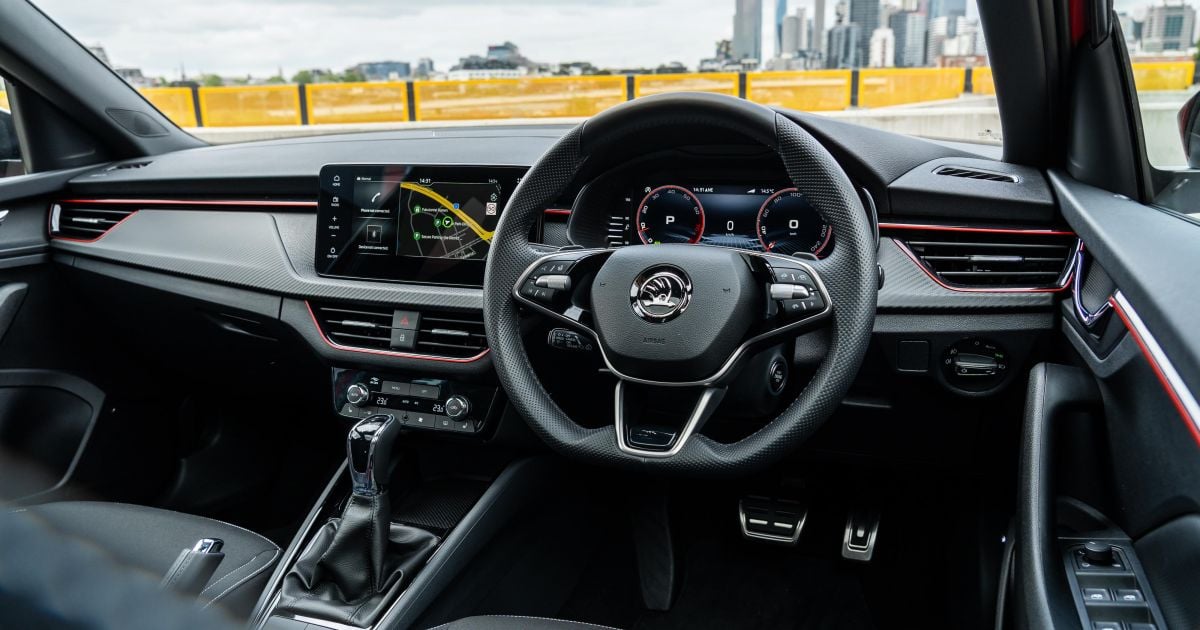
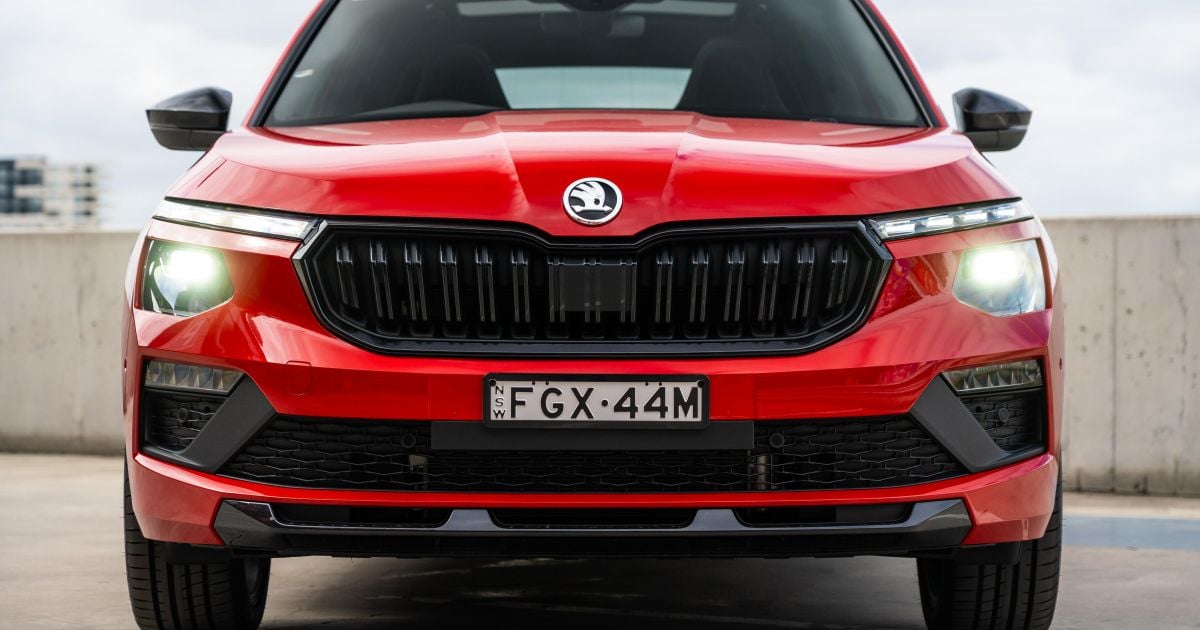
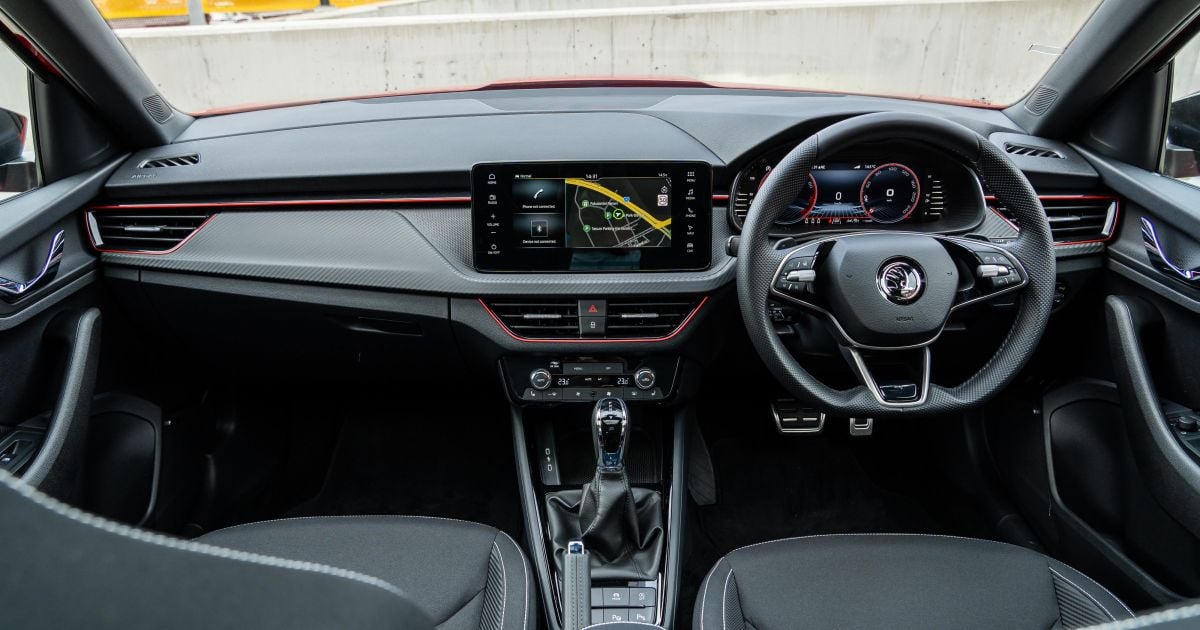
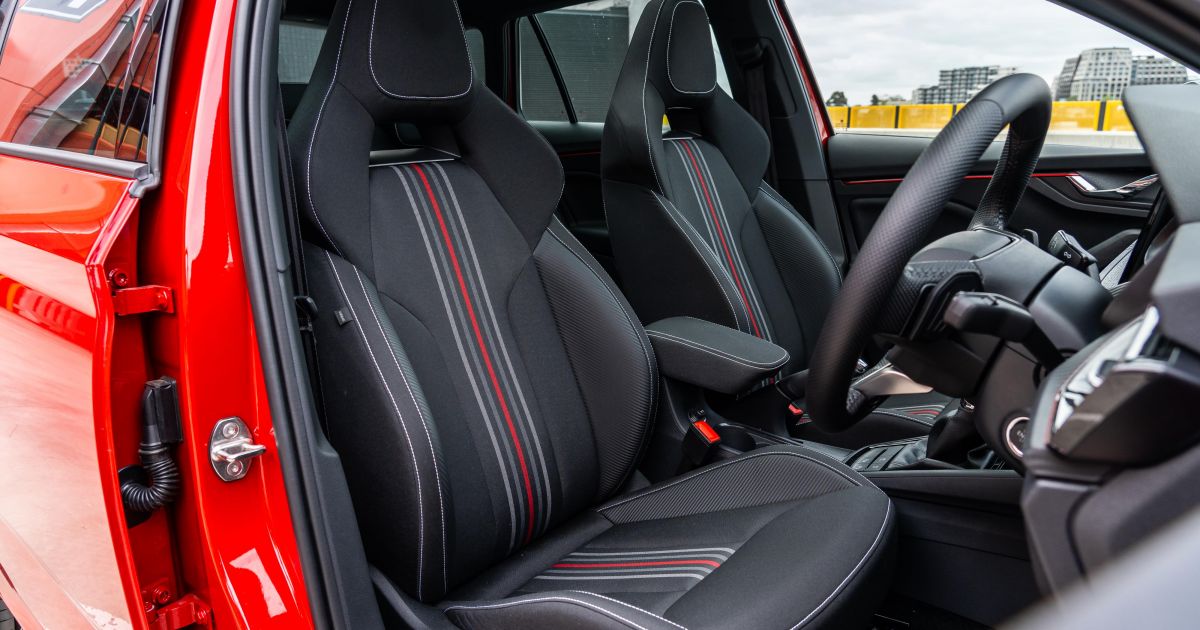
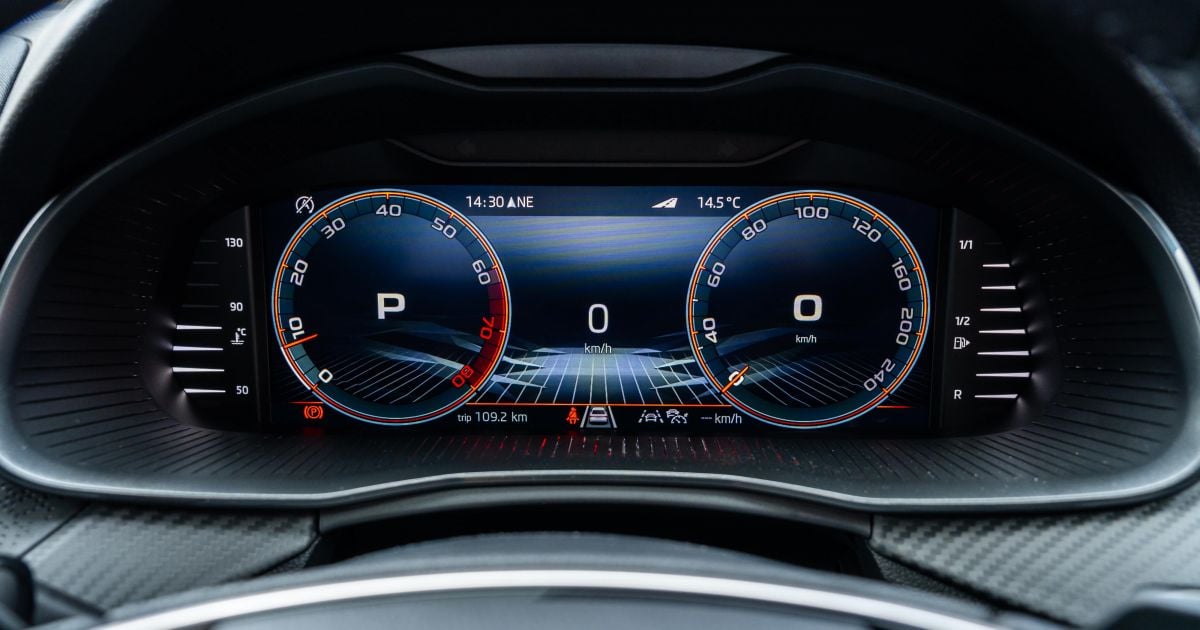
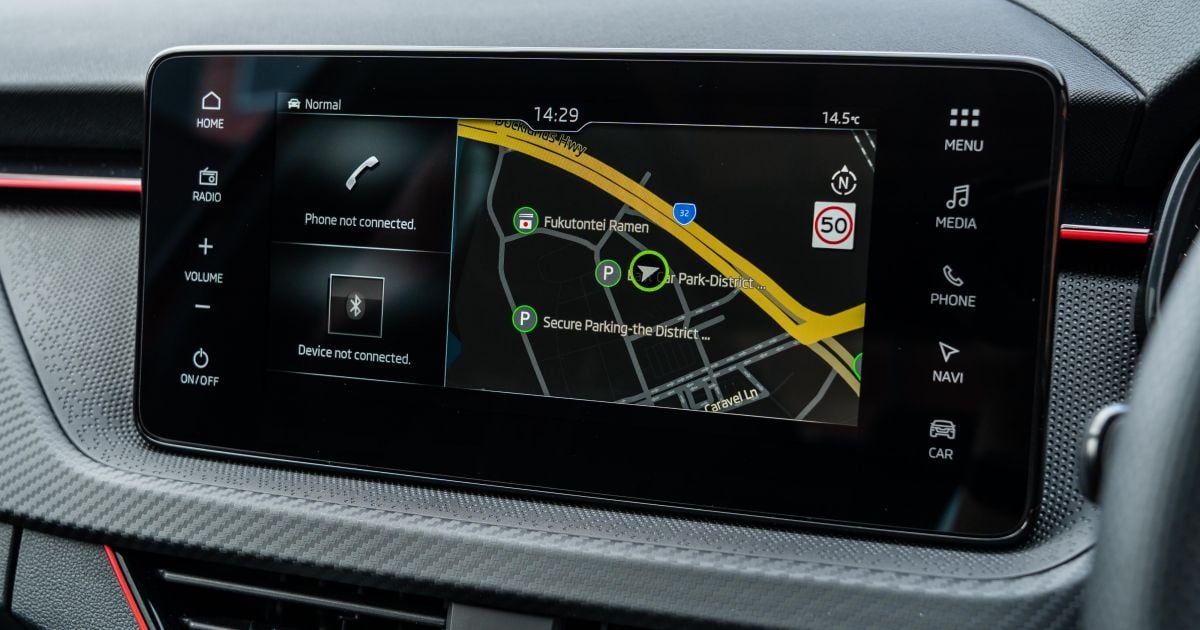
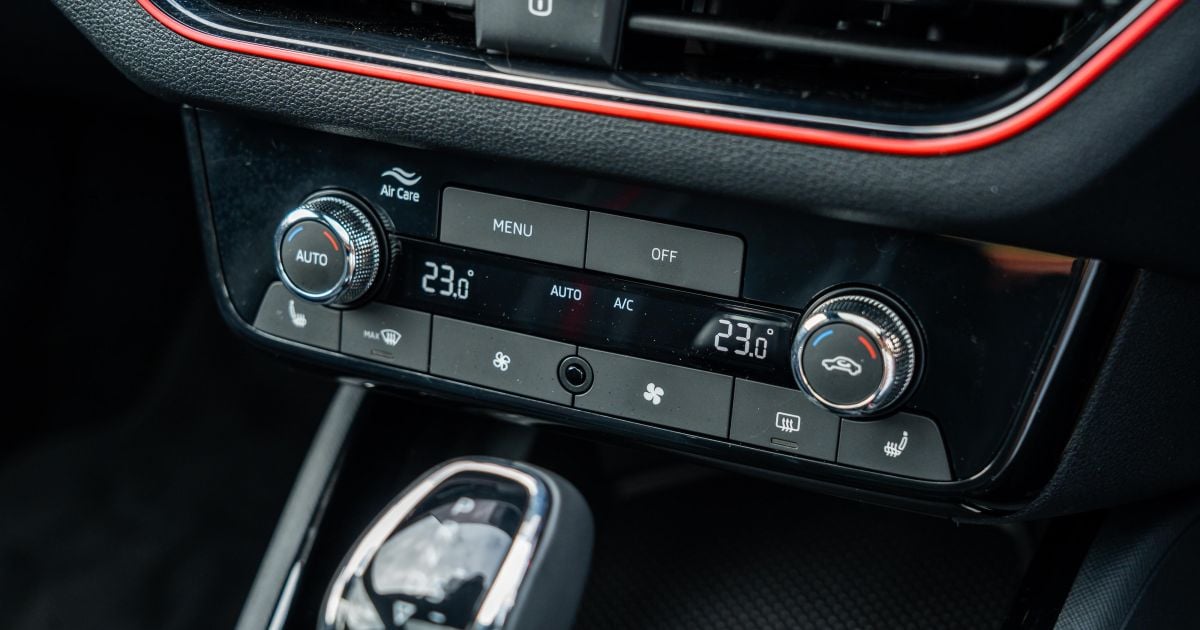
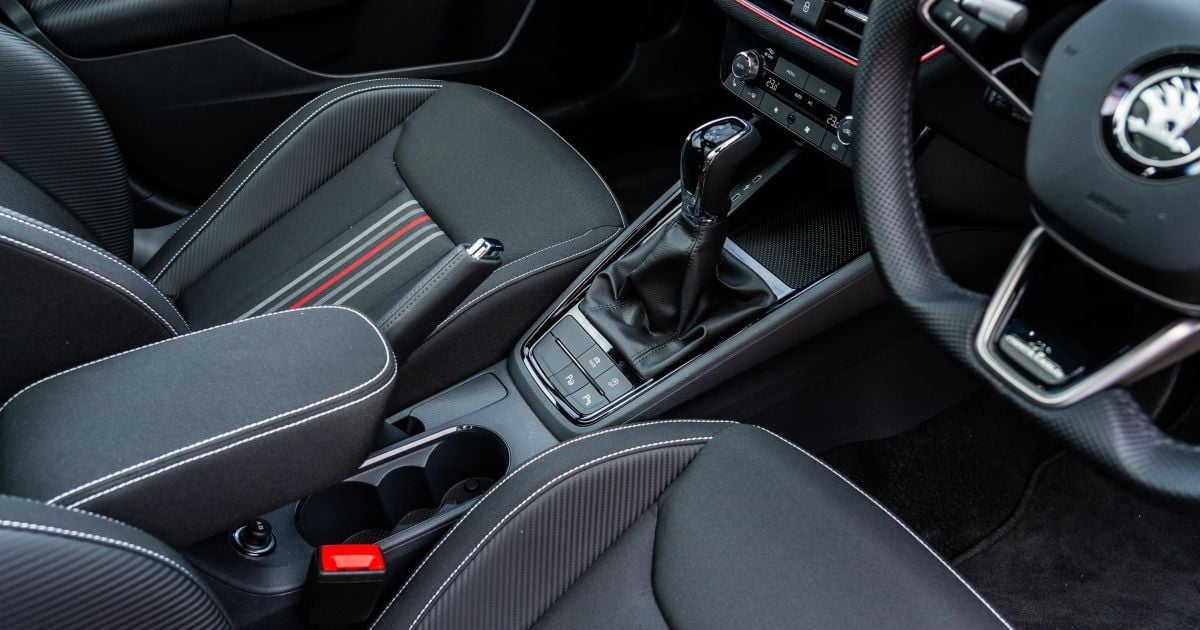
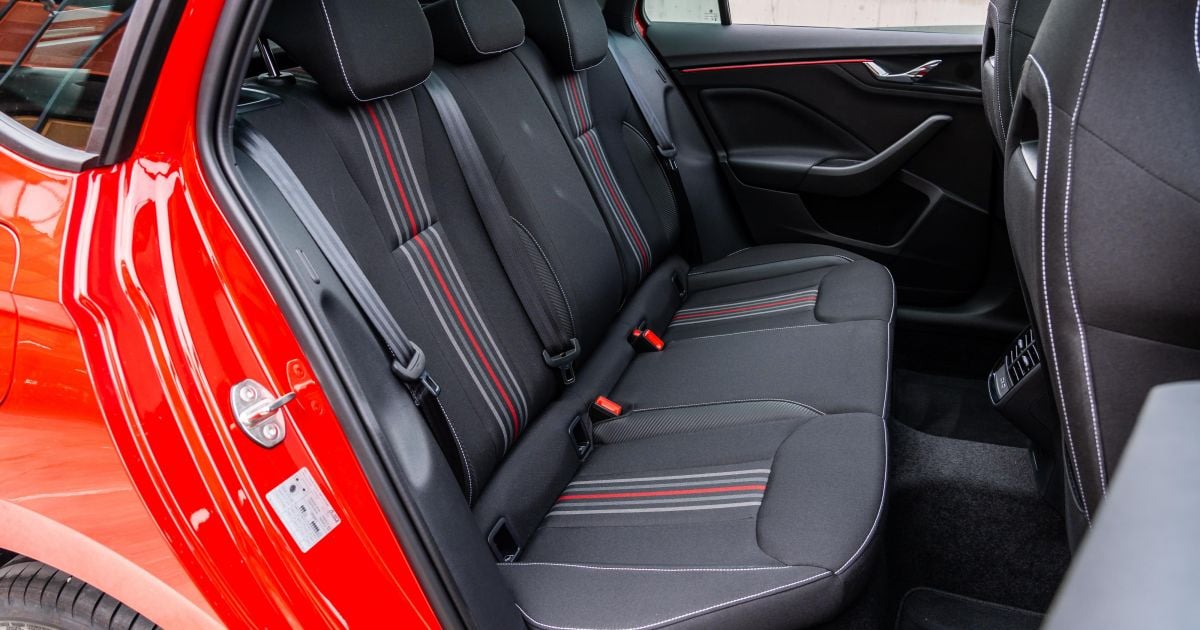
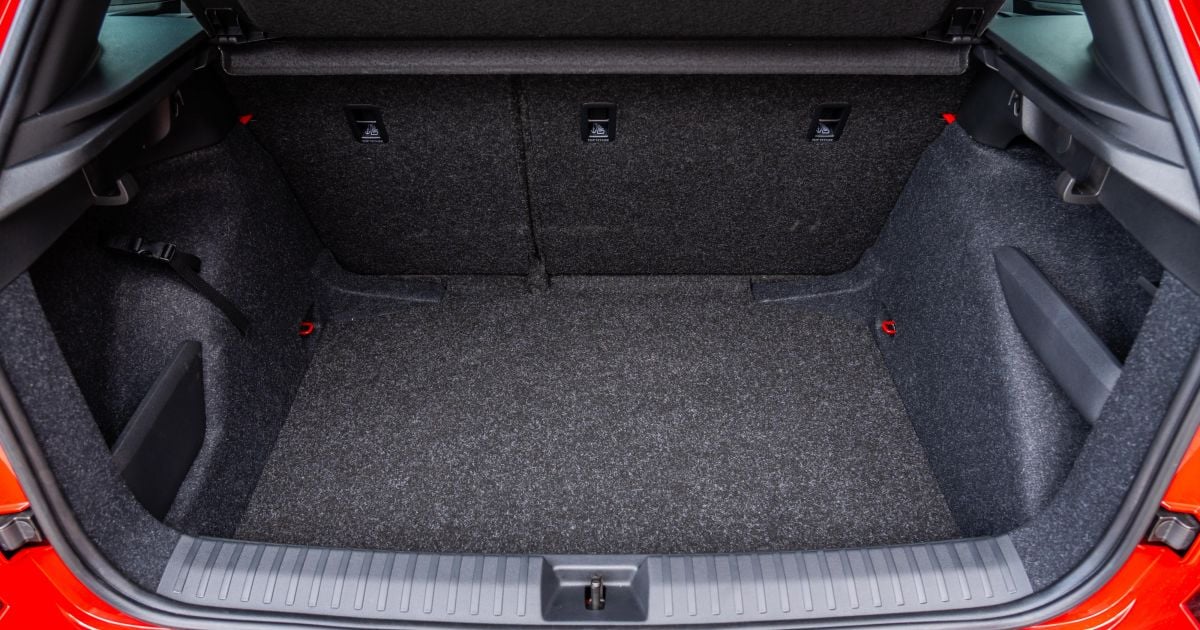
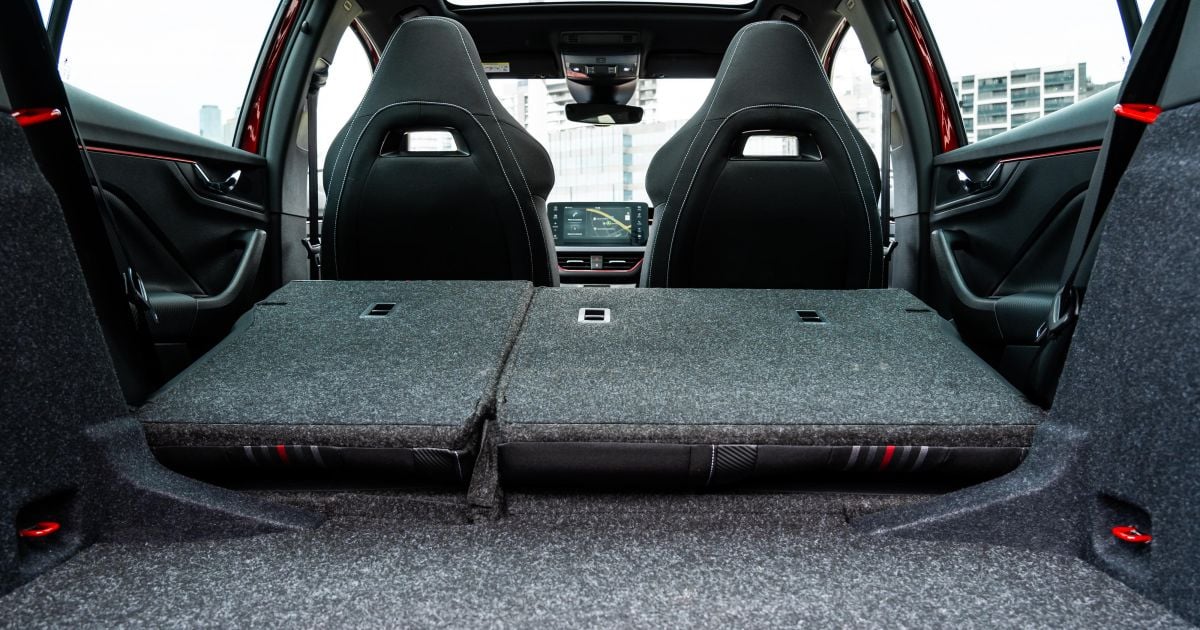
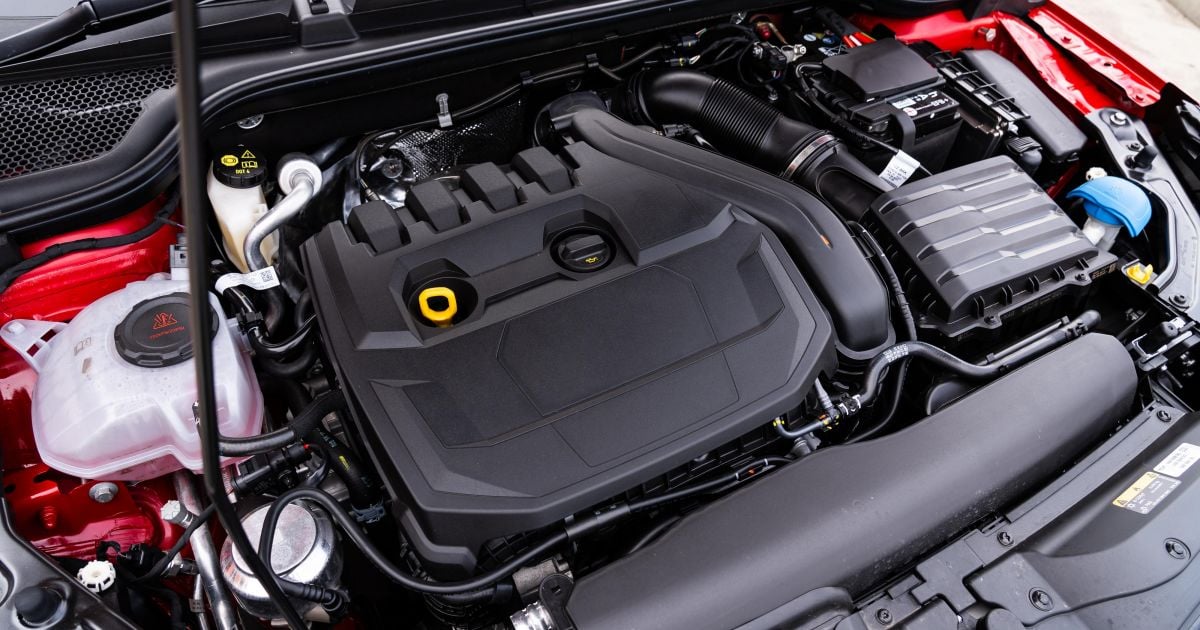
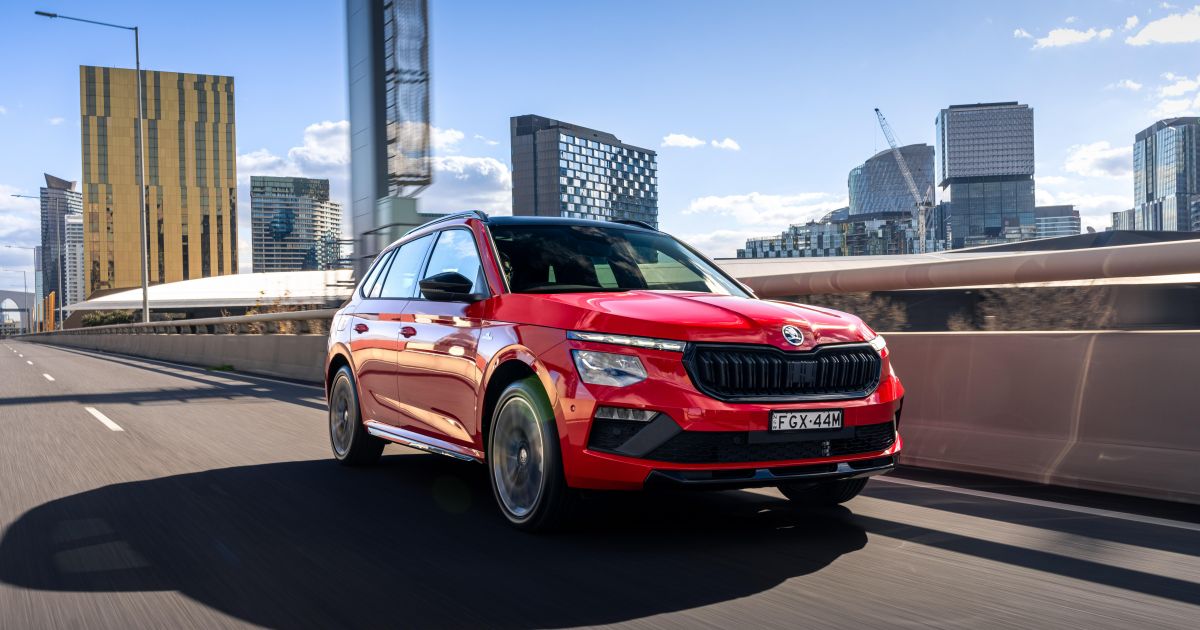
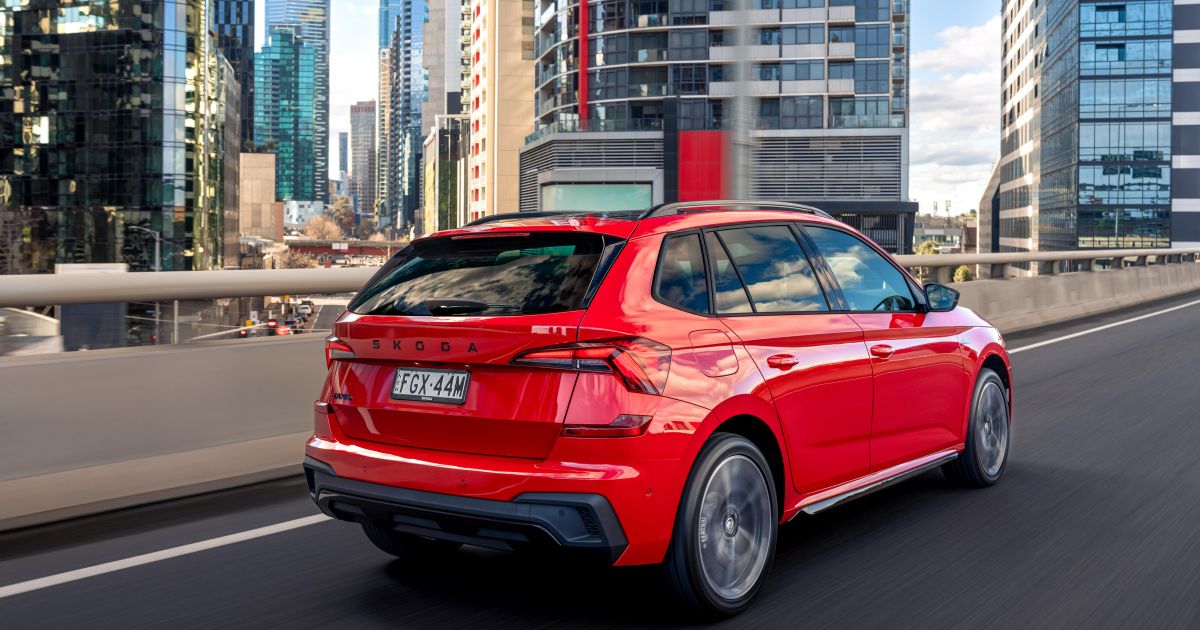
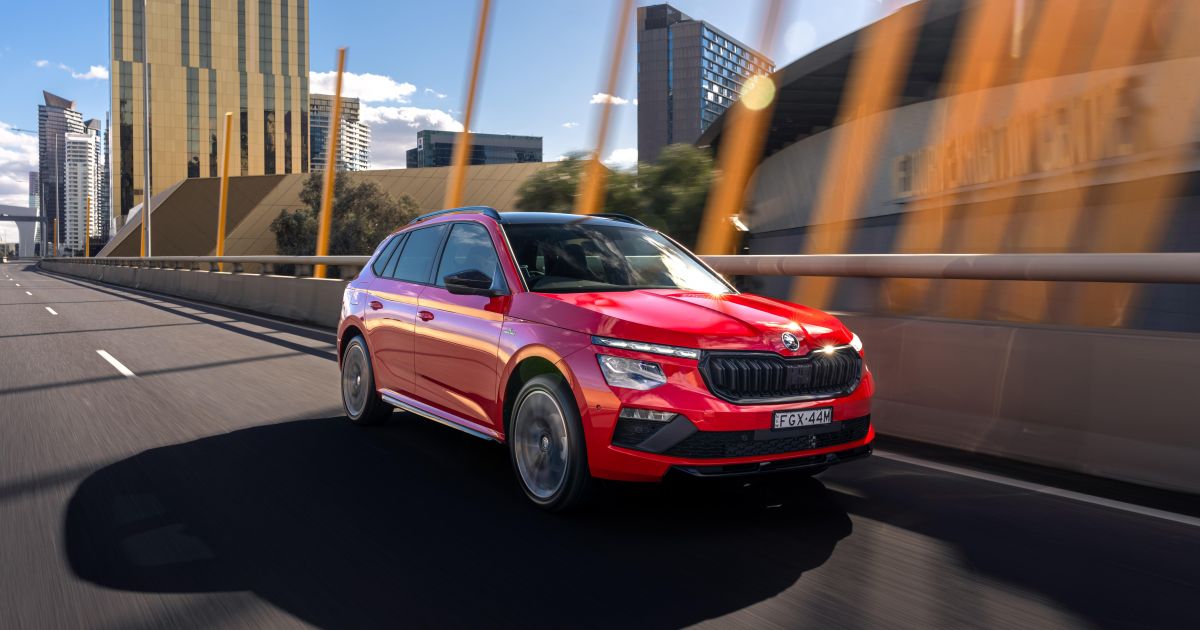
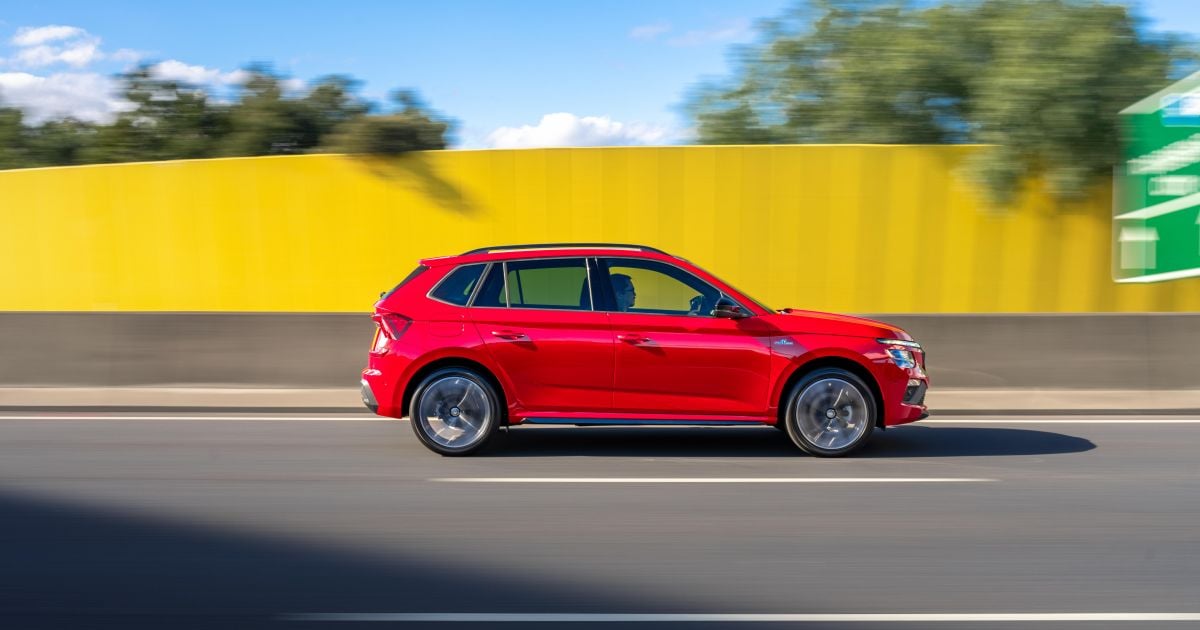
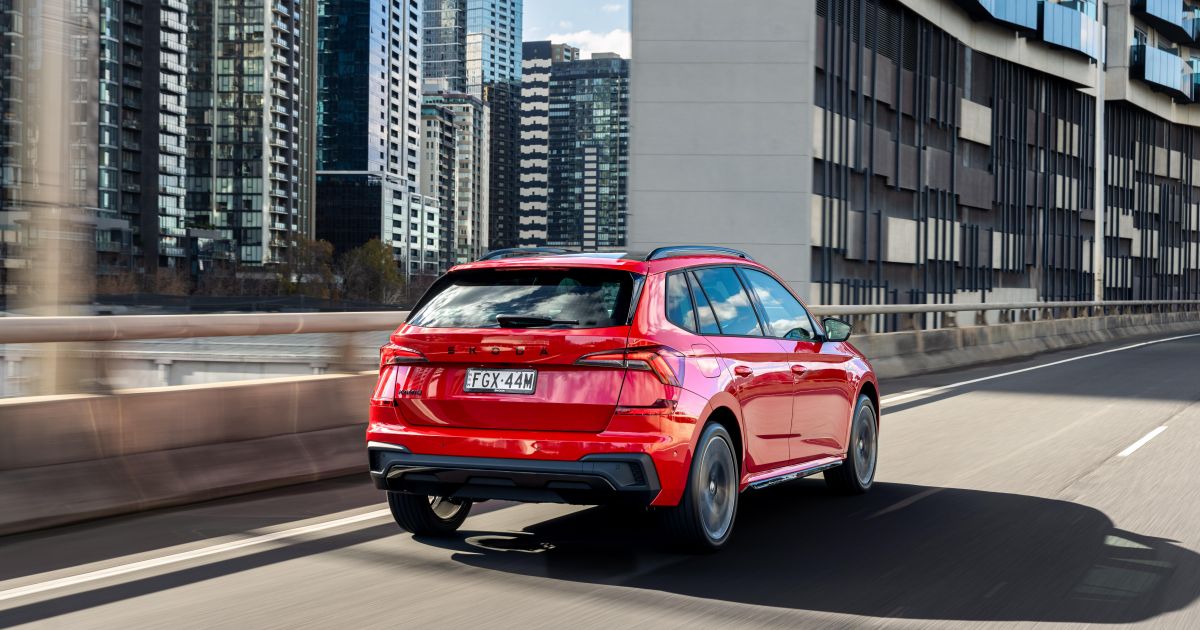
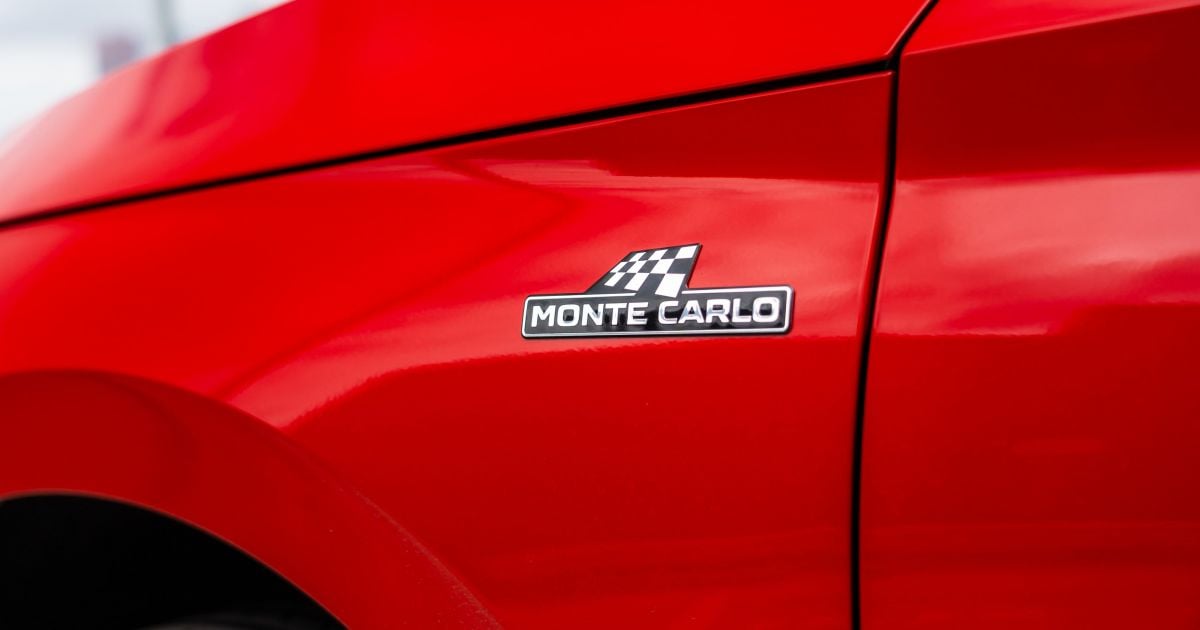
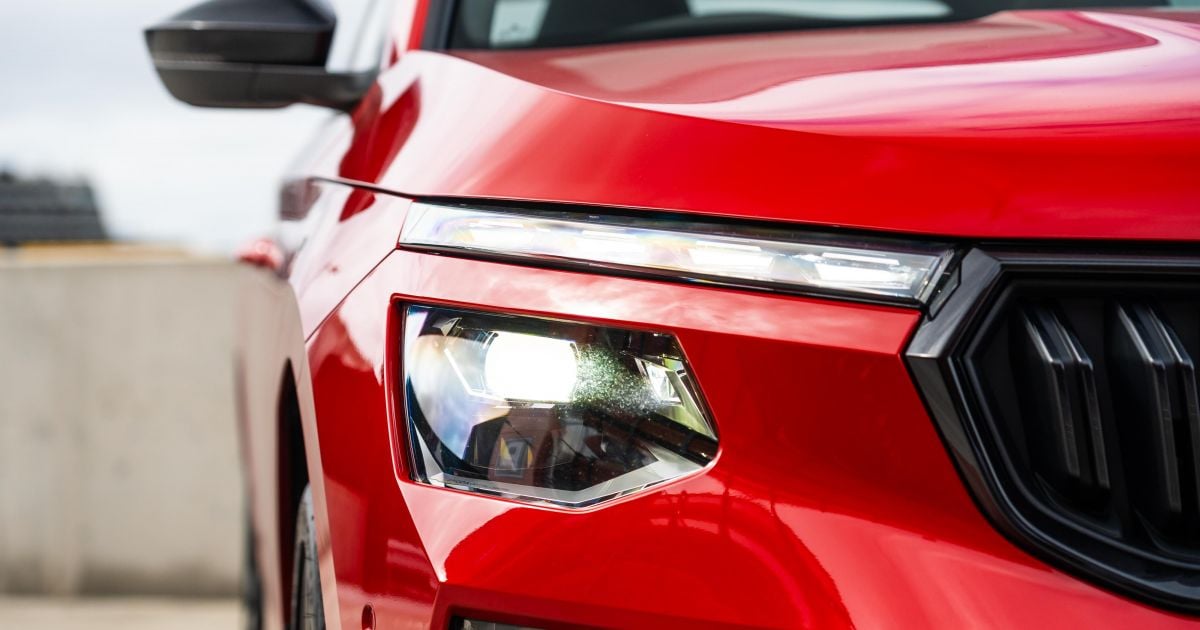
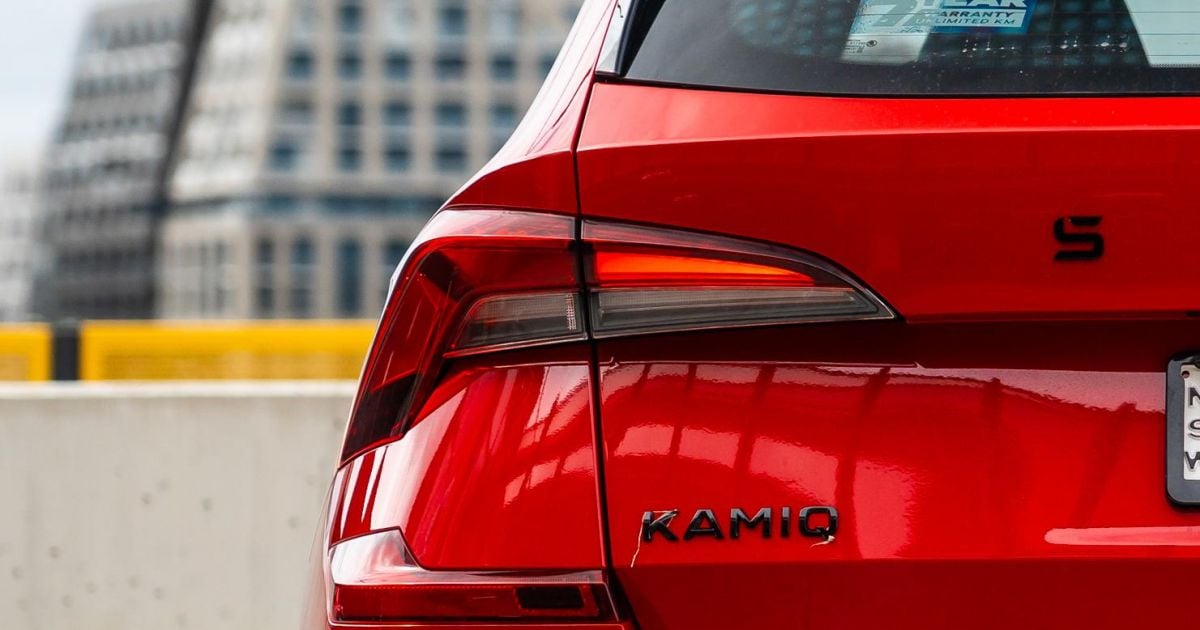
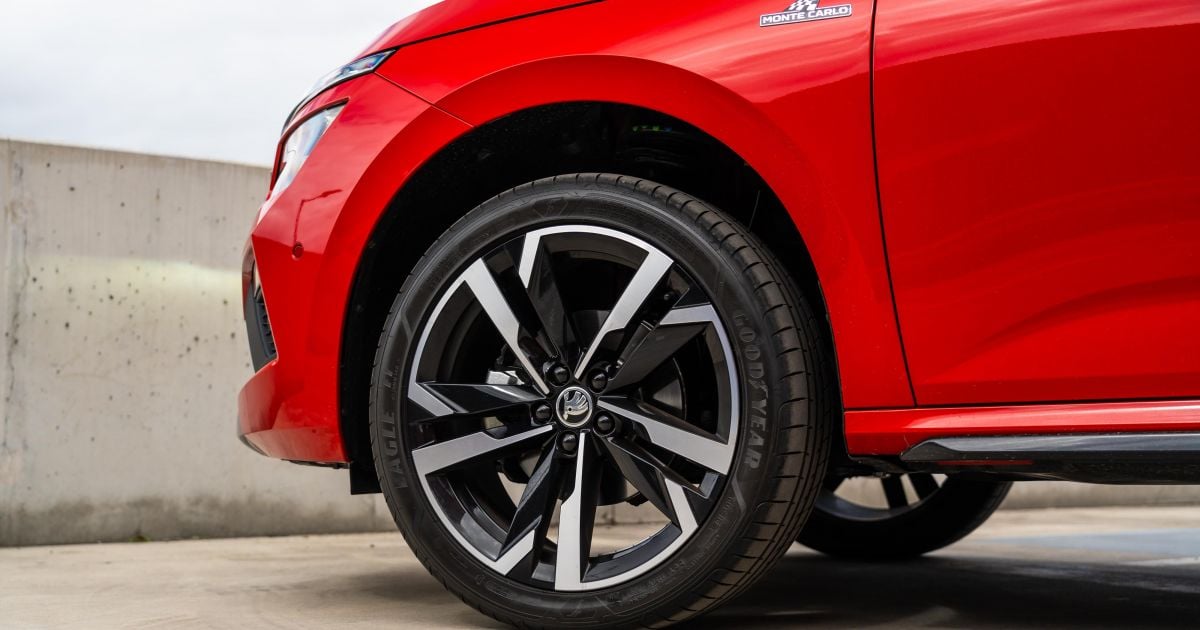
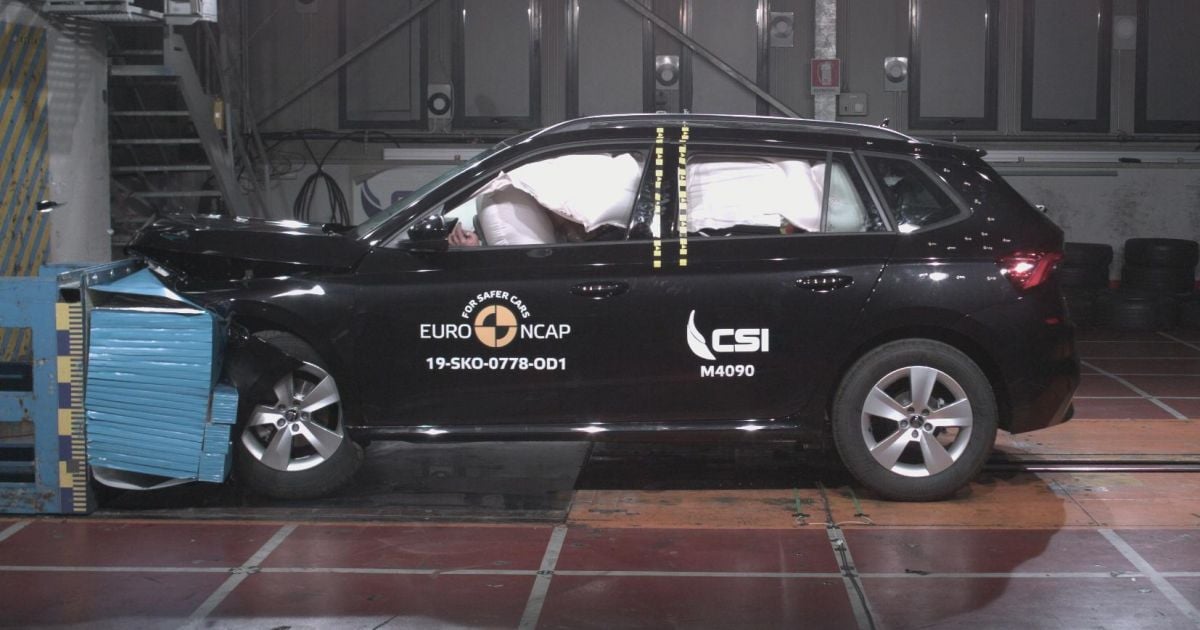
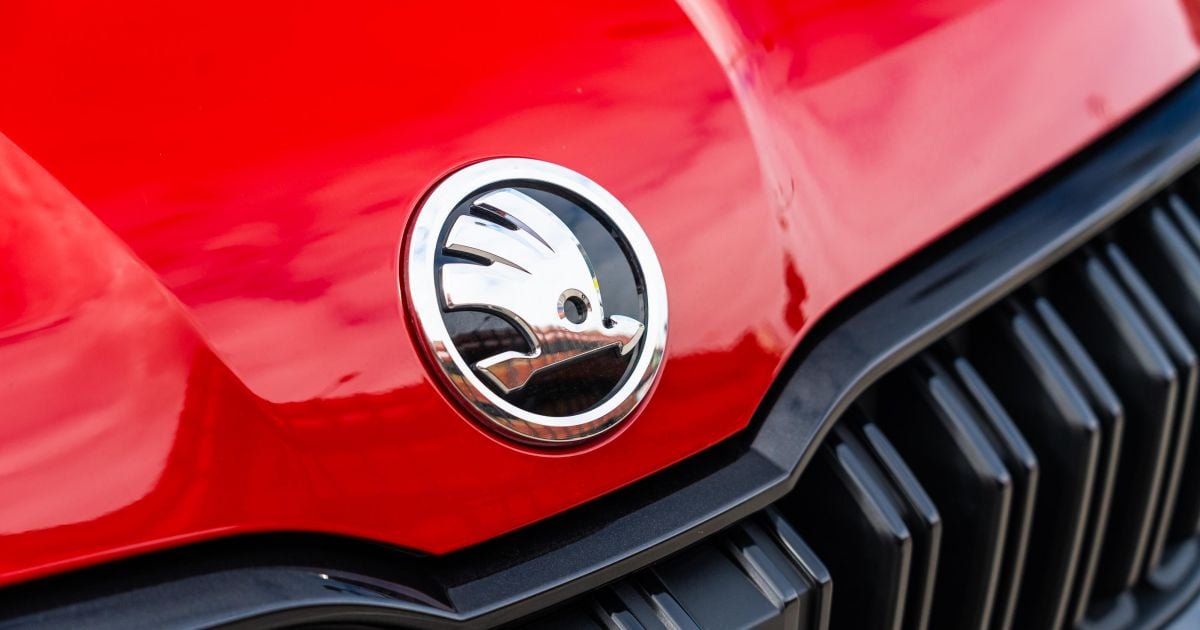
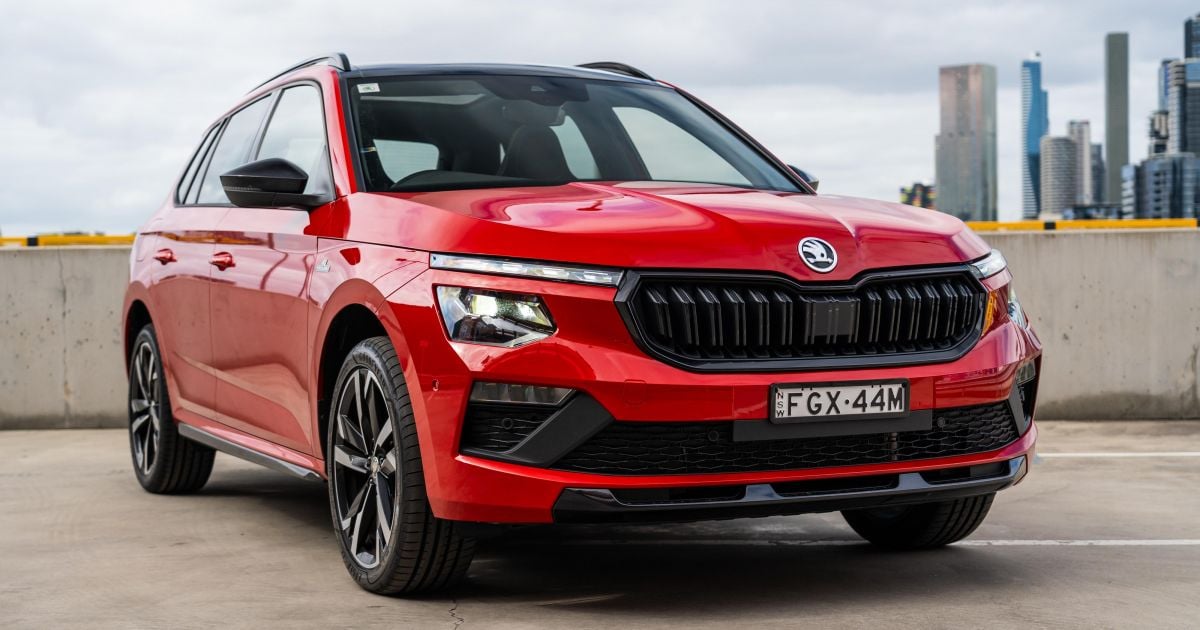
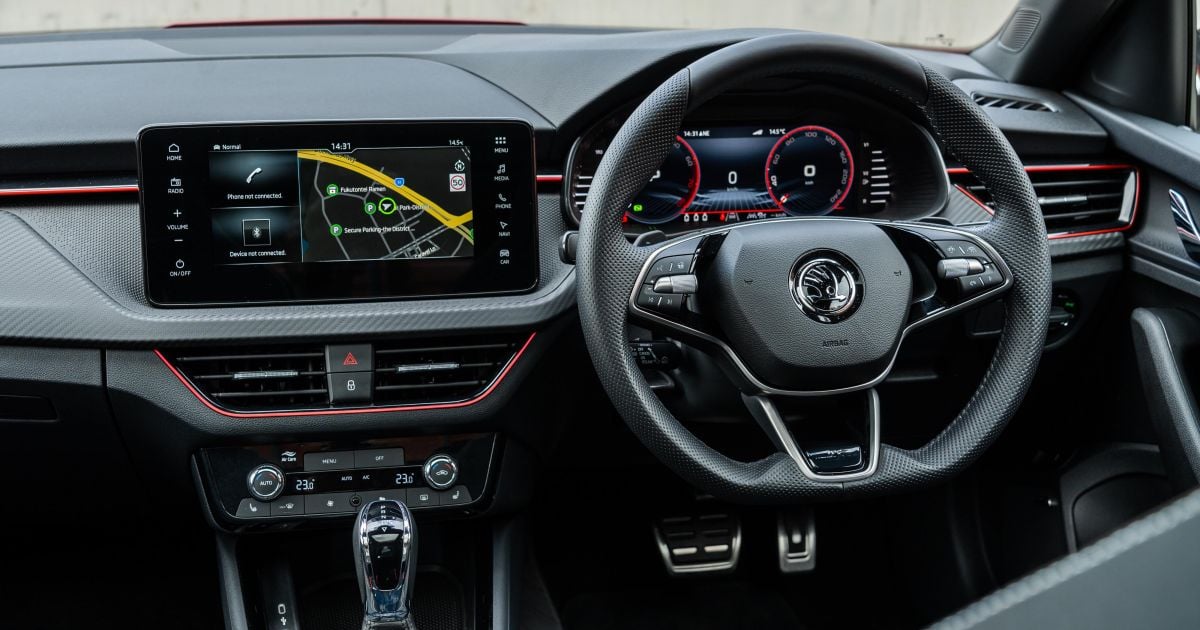
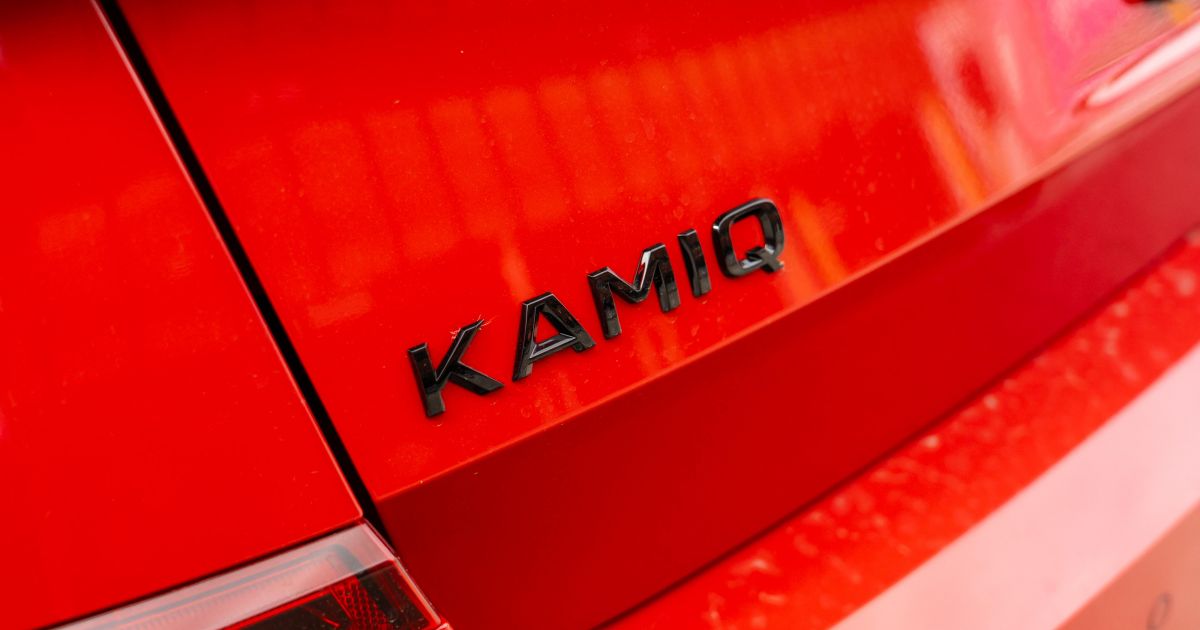
Leave a Comment